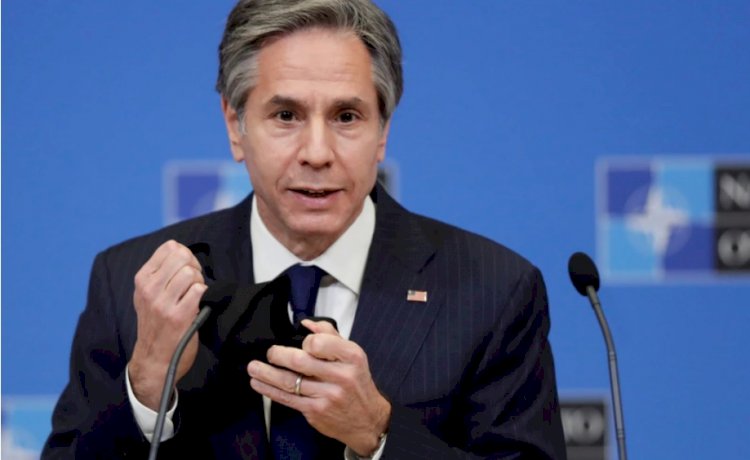US Reaffirms Climate Issue as Foreign Policy Priority Ahead of Earth Day Summit
Working with China

US Reaffirms Climate Issue as Foreign Policy Priority Ahead of Earth Day Summit
ANNAPOLIS, MD - Ahead of this week’s White House Leaders Summit on Climate, the United States is reaffirming fighting climate change as a top foreign policy priority, as it hopes to drive a green energy revolution.
On Monday, Secretary of State Antony Blinken is set to highlight American leadership on the climate issue during a speech at the Chesapeake Bay Foundation in Annapolis, Maryland.
“Every country on the planet has to do two things — reduce emissions and prepare for the unavoidable impacts of climate change. American innovation and industry can be at the forefront of both,” the secretary says in an excerpt of his prepared remarks.
Blinken says he will have a strong message to next month’s ministerial meeting of the Arctic Council, as well as a G-7 meeting, “whose members produce a quarter of the world’s emissions.”
At the climate summit, world leaders will gather virtually April 22-23 to discuss cooperation to reverse what U.S. officials describe as the “critical standalone issue” of climate change.
Washington says it is prepared to work with Beijing on the climate issue, even as the U.S. confronts China over other pressing issues such as Beijing’s clampdowns in Hong Kong and Xinjiang, military operations against Taiwan and in the South China Sea, as well as China’s economic coercion of U.S. allies.
Working with China
On April 17, the U.S. and China issued a joint statement, pledging urgent climate control measures after U.S. special envoy for climate John Kerry wrapped up meetings with Chinese officials.
Both countries say they intend to take appropriate actions to maximize international investment and finance to support the transition from carbon-intensive fossil fuel-based energy to green, low-carbon and renewable energy in developing countries.
China accounts for almost 30% of global carbon dioxide emissions. The world's largest emitter had set a goal to achieve carbon neutrality before 2060.
The U.S. is second in the world, emitting about 15% of the global total and has announced a goal of reaching net-zero emissions no later than 2050.
Some experts caution that a misalignment between Chinese rhetoric and action may pose an inherent challenge of credible global climate action.
“China could certainly do better; they simply choose not to. According to a recent Rhodium Group analysis, China increased emissions nearly 2%, the only major economy to show a rise during the pandemic year,” says Frank Fannon, who is managing director of Fannon Global Advisors and a senior adviser to the Washington-based Center for Strategic and International Studies.
“Last year, according to China’s National Bureau of Statistics, the country produced 3.84 billion tons of coal — the highest since 2015. And it put that coal to use,” says Fannon.
Other analysts argue that cooperation between the world’s two largest emitters can be done in parallel without weakening the U.S. negotiating position on other critical matters, and that keeping communication channels open is crucial despite existing tensions.
"We need great power solidarity in fighting climate change, not great power competition and conflict," says Michael Klare, secretary for the Arms Control Association board of directors.
“We need China's help in speeding the green technology transition in the developing world,” adds Klare, who described climate change as a greater national security threat than other issues.
Rob Atkinson, who is president of Washington-based Information Technology and Innovation Foundation (ITIF), says Washington’s growing rivalry with Beijing over technology could spread into climate policy.
"The only way to fix that [climate change] is to make clean energy cheaper than dirty energy" through innovation, including grid-scale battery storage and solar power, said Atkinson during a Monday webinar hosted by ITIF.
"What they [China] are leader in is stealing foreign clean technologies, pressuring companies to prep to transfer it when they don't want to do it, and massively subsidizing less innovative clean technology companies in China,” says Atkinson.
voa







































